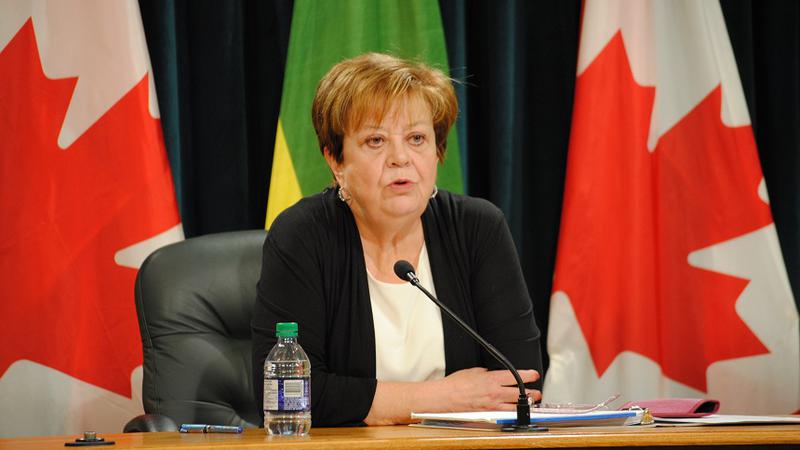
Saskatchewan sees $1-billion surplus due to strong resource revenue
High resource prices have brought a boost to Saskatchewan’s revenues, resulting in a surplus budget and allowing for reduction of the provincial debt as well as relief measures for residents struggling under the high cost of living.
According to the Ministry of Finance, the higher revenue from non-renewable resources means Saskatchewan is now forecasting a surplus of $1.04 billion for the first quarter, which is $1.51 billion higher than predicted in the budget.
“That means we can balance the budget, pay down debt and help Saskatchewan residents with the rising cost of living,” Finance Minister Donna Harpauer said in a statement accompanying Tuesday’s fiscal update.
Revenue from non-renewable resources increased by $1.86 billion, the finance ministry said, reflecting higher prices for oil and potash.


